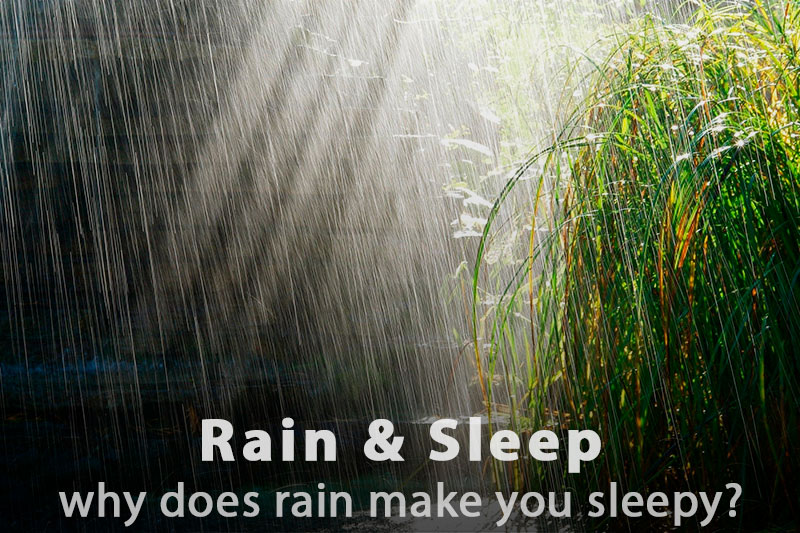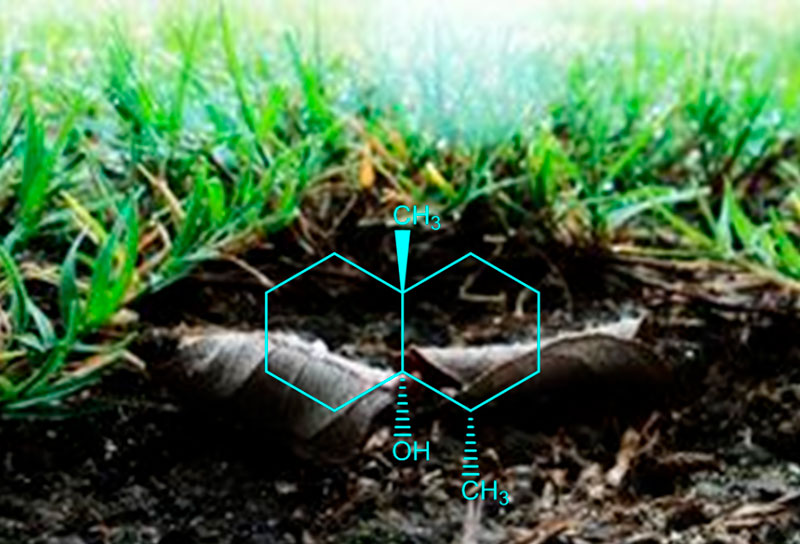Probably everyone noticed that sleep is especially good when it rains. But few ever wondered why there is such a correlation between the human body and the weather. Let's try to figure it out using up-to-date scientific data to keep an open mind. Actually, there is no unambiguous version to explain this, so we will consider the most reliable and important ones.

Our brain subconsciously takes the twilight on a cloudy day as evening time.
Even and monotonous sound calms you down, helping you switch off and fall asleep.
Rainwater washes out geosmin from the soil, giving it an unusual smell called “petrichor,” which has a relaxing effect.
Even healthy people's blood pressure and heart rate drops, making them drowsy.
In cloudy weather, the sky gets overcast, and the natural light goes down, so you often have to turn on the artificial light to do the usual things. It was found that the human body is sensitive to this change. Here is the thing: in the face of the lack of sunlight, our body first starts releasing melatonin (a sleep-related hormone). Moreover, we associate twilight with nightfall. And what do we do at night? Exactly! We go to bed and fall asleep.
This is one of the theories explaining why we sleep better when it rains. Twilight just gets the biological clocks out of sync, giving a person a sleepy feeling and the desire to take at least a half-an-hour nap.
The next point is much more complicated and deep, with not-so-obvious reasons and consequences. It turns out that under hot and dry conditions, plants produce special oils that prevent seeds from germinating and dying from drought.
Also, the soil contains an organic compound called geosmin, produced by bacteria and responsible for the one-of-a-kind, distinct earthy scent—petrichor. After the rainfall, moisture washes out essential oils from the soil, mixing them with geosmin. This results in an unusual flavor that has a soothing effect. It calms down and relaxes you, so you naturally start feeling sleepy. 
In fact, scientists have had an interesting take that connects the history and the theory of aromatherapy. A heavy rain pouring seeds has always been a key to survival—otherwise, the fields would simply dry out and fail to yield a crop. So petrichor has a kind of calming effect, telling you there is one less to worry about—the crops are safe, meaning you won't face hunger. This connection, which was more a thing several centuries ago, is very likely to remain with modern people, even those who have nothing to do with agriculture. So it's all about genetic memory that transmits information through many generations.
Everyone knows that rain is often accompanied by thunderstorms. Ozone is formed by powerful atmospheric discharges, saturating the air and evoking associations with cleanliness and freshness. And ozone's effects do not end there. It also makes you sleepy. That's why many medicines containing ozone gas typically aim to improve sleep or at least have this side effect. That is why they should be used with caution.
Not least among the reasons is the raindrop sound when it hits the ground, pavement, and especially window glasses. Perhaps, everyone likes it — it eases you up and helps to tune in to a lyrical mood.
Unsurprisingly, the sound of rain covers almost the entire frequency range audible to the human ear — from 20 Hz to 20 kHz. So this sound fills the full ear canal, making you relax. Besides, it is very even, having no sudden changes or transformations, and with this monotony, deep relaxation comes.
This effect has not been confirmed by laboratory studies yet. But just try to sit in a chair near the window for 10–15 minutes on a rainy day and listen to the raindrop hitting the window. Even if not the sleep, the feeling of peace will certainly come to you — something that modern city-dwellers can rarely boast of.
Scientists have known for centuries that rain and atmospheric pressure go hand in hand. The pressure drops shortly before the rainfall, and this is how barometers work. Elderly people know this firsthand, and they don't even need any special instruments.
Under low-pressure conditions, our body adjusts to the new environment and lowers blood pressure. Indeed, this has a certain effect on the body: the heart rate decreases, and the level of oxygen in the blood falls.
These changes are so insignificant that they have no impact on most of our organs. Except for the brain — it consumes a fair share of all resources, including oxygen, and being highly sensitive to such changes, slows down. That's why sometimes it's hard to focus on a particular task, or you’re too lazy for any physical activity and want to sleep or lie down.
Of course, it's hard to say exactly which of these factors is a major asset to rain-driven drowsiness—for this, profound laboratory studies are needed. However, there is no doubt that rainy weather is perfect for spending the whole day under a blanket, reading a fascinating book, or binge-watching an entire season of your favorite TV show, from time to time getting out for a mug of hot tea or cocoa to the kitchen.
References: Links and sources